Dying Light Review: Spiritual Sequel To 'Dead Island' Is Brilliant, In Spots
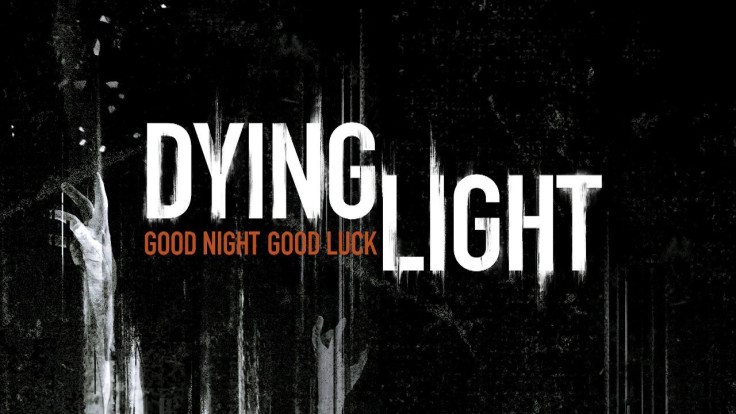
"Dying Light," a survival action game from Polish developing studio Techland, has been touted as both a spiritual successor to the studio's "Dead Island" series and the first AAA title of 2015. While the former is obviously true, the latter is a bit more difficult to conclude.
You play as Kyle Crane, a soldier working undercover to find the source of a rabies-like disease that’s turning people into zombies. Dying Light is a mixture of survival, role-playing, first-person shooter, and platformer; gameplay relies heavily on Crane’s ability to run, jump, and climb to avoid the hordes. Think "Dead Island" meets "Mirror's Edge" -- basically, it’s a parkour game that lets you fight zombies.
The Good
The parkour system is fair, intuitive, and surprisingly rational. Crane is a fit man, but he’s not superhuman -- he can grab bars and pull himself up slowly, multiple times, and he’s a fast runner, but he’s not going to survive a 30 foot fall. He can't scale a 300 foot building with ease, like Assassin's Creed's Ezio. Mistakes will cost you health (and if you're foolish enough, your life), but the game never sets you up with unrealistic expectations -- if it looks too high to jump from in real life, it's probably going to injure Crane. The city is designed with this system in mind, offering multiple vertical paths to scale, though you can't stay on the rooftops forever.
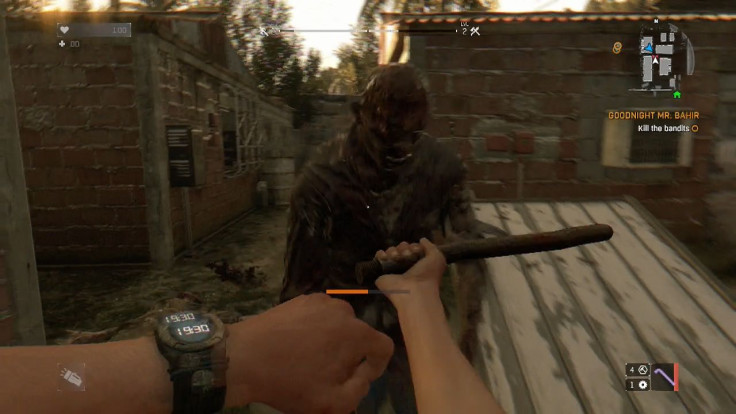
Although Crane is a soldier, he doesn’t have unlimited, magically recharging health. He’s not packing an armory of assault rifles (though he does have a pistol in the opening cutscene, he quickly loses it). He’s lucky if he finds a wrench, or a pipe -- guns are much harder to come by. The odds are stacked so high against you that when you do win a fight, it’s oh-so-satisfying. Especially in slow motion.
Crane himself is extremely likable -- he ultimately wants to help people, despite his official mission, but he plays his part with sass. The survivors he shacks up with are also well-acted, and they lend an extra layer of believability to the game’s premise; these are dark times, but some strangers band together to help each other live just a while longer.
Dying Light’s world map (the Turkish city of Harran) is massive. There are plenty of places to explore and tools to find -- all of which you’ll need if you want to stand a chance of surviving. Graphics are impressive, even on consoles: environmental effects are particularly gorgeous -- lens flares approach J.J. Abrams level of quality (though not that level of ubiquity, thankfully), and sunsets are breathtaking. It’s nice to relax and enjoy the weather, as long as you’re somewhere safe from the zombies.
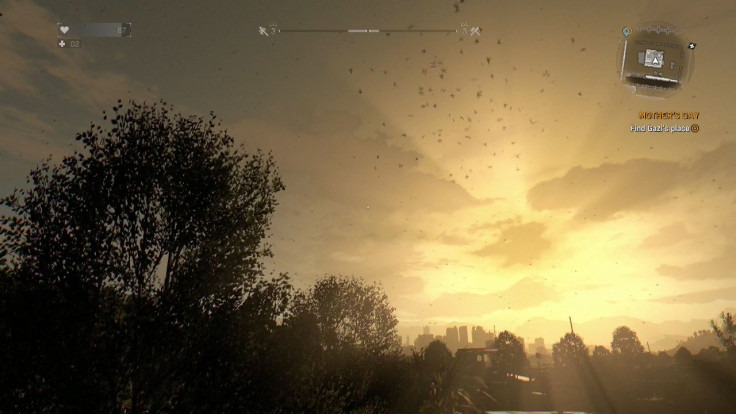
Dying Light does a great job teaching you the basics -- the tutorial is informative, but it doesn’t hold your hand or beat you over the head with useless knowledge. It boils down to “Here’s how to run, here’s how to swing a weapon, and here’s how to climb. Use this to figure everything else out.” It never stops to drill already-explained concepts, though you will get a helpful call an hour before sundown (the nastiest zombies come out at night).
Daytime zombies are slow, and rather stupid. But when night falls...the fear gets real. Quick.
Zombie games usually aren’t that tense or scary, even at nighttime, because you’re given lots of guns or teammates to watch your back. But Dying Light is the stuff of nightmares -- you’re lucky to have a knife when the strong zombies come out to play. They’re fast, smart, and numerous. Facing them head-on is suicide, but escaping isn’t easy either. Regular zombies don’t make getting away any easier, since they’re much quicker and more aggressive at night.
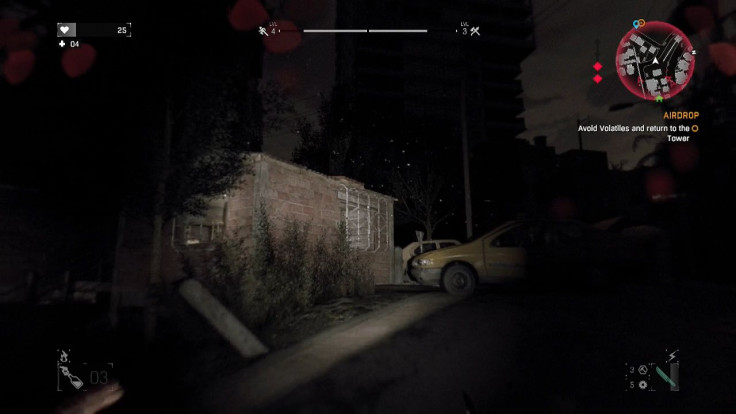
What follows is an absolutely terrorizing few minutes spent frantically looking for shelter, desperate to stay alive. All of a sudden you forget about rooftop paths and start mashing buttons to get away.
Dying Light’s nighttime mode actually made my pulse race. It’s sort of a shame the rest of the game doesn’t.
The Bad
Dying Light is a very lonely game. When you’re outside The Tower (the main hub for your band of survivors), you’re completely and utterly on your own against thousands of zombies, hostile survivors, and the elements.
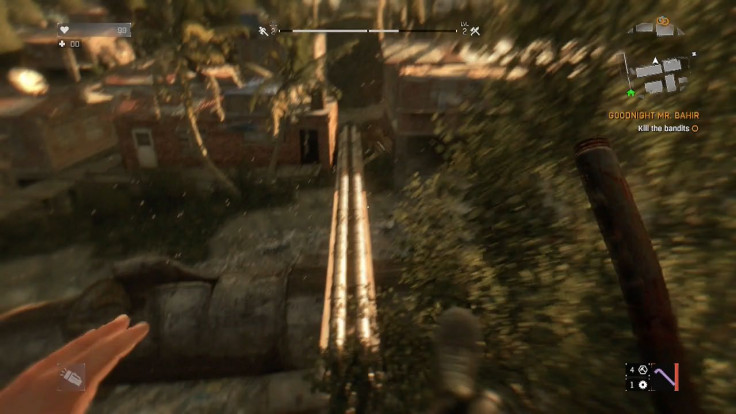
This means there’s a lot of running around, from objective to objective, collecting loot along the way. The problem with this is that it takes an exorbitant amount of time to get places and collect decent loot; much of the advertised “50 hours of gameplay” feels like heavily-padded grinding. Which, no matter how well the grindfest that is “Destiny” does (though Dying Light makes an ironic poke at Destiny's loot cave), isn’t very interesting in a single-player game. Dying Light becomes more of a chore than a fun experience.
What’s most confusing is Crane’s arbitrary limitations -- he’s athletic and can leap from roof to roof with no issue, but he gets tired after swinging a pipe five times. Combat is needlessly aggravating because of this -- limiting the arsenal is one thing, but this seems like a deliberate move to discourage combat. Why would a soldier be so easily winded in combat?
Conclusion
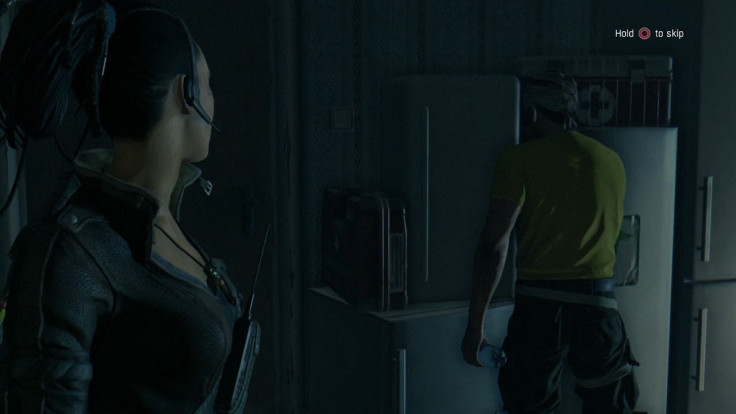
Dying Light has a lot of great mechanics, and it has spectacular moments. But they’re often buried beneath hours of scavenging and grinding. There’s a lot of potential here, I’m just not sure I’d want to spend fifty hours finding all of it.
Good for: Zombie aficionados, fans of “Dead Island,” grinders, those seeking a challenge.
Not good for: The squeamish or easily scared. Impatient people. Anyone expecting “Dead Rising.”
Dying Light was released on January 27th, 2015 in North America. A review copy was provided by Techland & Warner Bros.
© Copyright IBTimes 2024. All rights reserved.






















